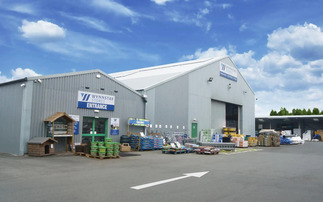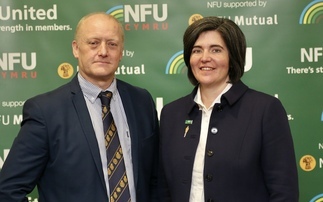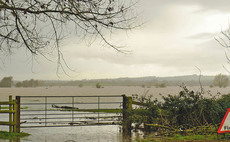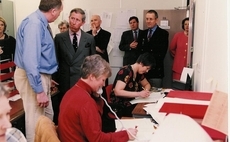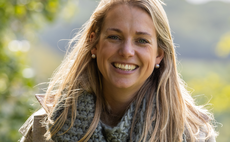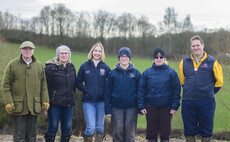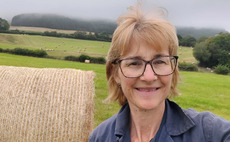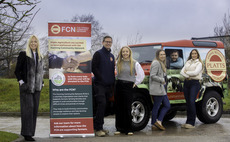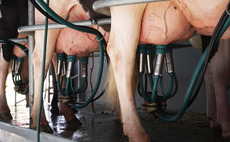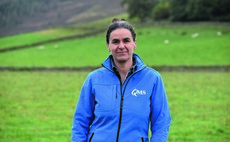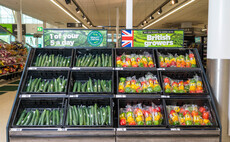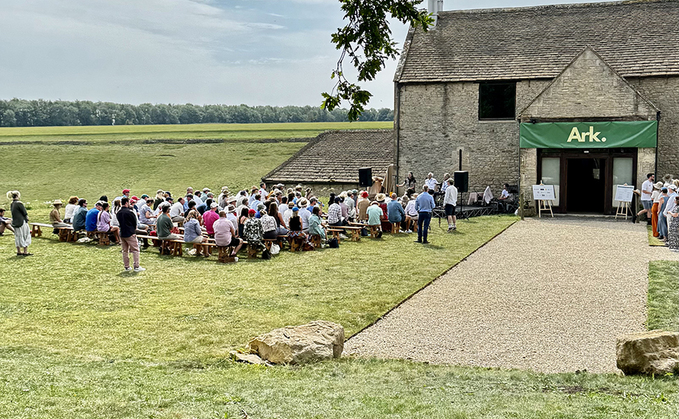
Encouraging discussion and inspiring change were the key themes at this year's ARK Summit, a regenerative farming conference in the heart of the Cotswolds.
Around 150 visitors descended on Hill Barn in Hazleton, Cheltenham, to hear from the likes of Helen Browning, chief executive of the Soil Association; Patrick Holden, founder of the Sustainable Food Trust; Sophie Gregory, organic dairy farmer; and Rob Bray, chief sustainability officer at Wildfarmed, to name but a few.
Tom Pycraft, the founder of the summit's host Ark Consultancy and Events, said that the industry had reached a ‘critical moment' for regenerative and sustainable agriculture.
"In uncertain times, we must move fast – beyond polarised land use debates and technical jargon - to transform our systems," he said.
"A sustainable food future depends on resilience and collaborative action between the public and private sectors, to build a food system that supports both people and the planet."
READ NOW: Regen special: Regenerative farming drives success for Midlands Angus herd
The day began with a panel on the mass adoption of sustainable agriculture, where George Eustice, former Secretary of State at Defra, said the Sustainable Farming Incentive was quite ‘radical' at the time, and it was a scheme created to incentivise farmers to do the ‘right thing'.
He also said policies that focus on nature and restoration need time to work, and that for these schemes to reflect what really goes on in the field, farmers who hold key technical knowledge need to be consulted.
It was a sentiment fellow panellist Adele Jones, executive director of the Sustainable Food Trust, agreed with.
She said: "We need farmers' voices in policy decision-making – blunt, quick decisions are being made that have a big impact on medium and small farmers."
Language was also a key topic and perhaps a barrier when trying to encourage farmers to think about alternative farming practices.
Wellbeing
Outside, overlooking the landscape around Hill Barn, Claire McKenzie, producer of the docu-film Six Inches of Soil, led a session on empowering young people, inclusion and wellbeing.
The connection between nature and health was a topic discussed throughout the day, and Jamie Fielden, founder of well-known charity Jamie's Farm, which works to support young people, said technology has taken people away from the land, and there is a lack of people outside because of it.
He also said that the physical work of farming can give young people confidence and a sense of achievement.
Mindset
Ethos, leading the way and proactive change were in focus too.
Organic arable farmer Ben Andrews said that switching farming methods can seem risky, but sometimes you simply ‘have to go for it.'
He was part of a panel on shining a light on the UK's farming pioneers, along with arable farmer Ed Horton.
Mr Horton said having the right people around you is necessary to progress and implement change.
He said: "I can have all the wild ideas I like, but I rely on a good team who help to run the farm. I am able to take my idea and communicate it to them."
Mr Horton also said being part of farming cluster groups motivates farmers to share knowledge and can be used as education tools.
Supply chain
Building resilience in the supply chain is something many in the industry are currently fighting for, and Rob Bray, chief sustainability officer at Wildfarmed, said there is space for high quality produce in supermarkets and that farmers must ‘work within the system in order to drive meaningful change.'
Sending meaningful messages to the consumer can create impact, too.
Mr Bray said: "You can eat this food, enjoy it and know it is not hurting the planet."
Founder of Wylde Market Nick Jefferson also said that using simple language is key. Bringing produce to life and the benefits of regenerative agriculture – especially with a focus on human health – will encourage people to pay for it.









